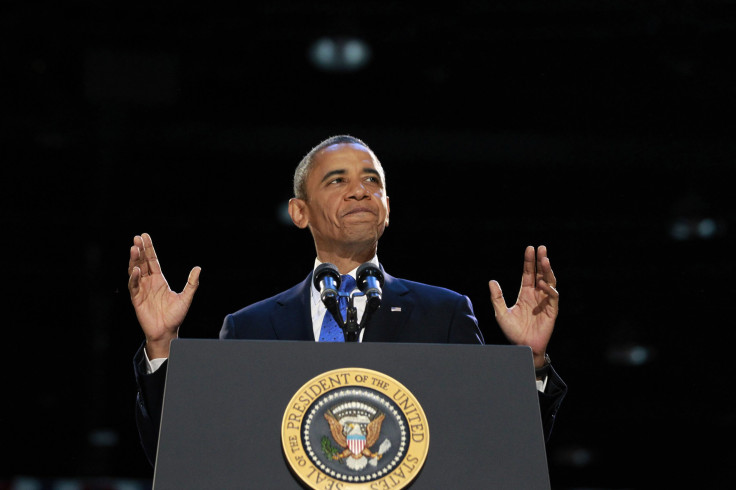Obama Win Clears Healthcare Reform Hurdle, Challenges Remain

President Barack Obama's re-election victory eliminates the possibility of a wholesale repeal for his healthcare reform law, but still leaves questions about how much of his signature domestic policy achievement will be implemented as the national political focus shifts to the debt and deficit.
The 2010 Patient Protection and Affordable Care Act, which represents the biggest overhaul of the $2.8 trillion U.S. healthcare system since the 1960s, aims to extend health coverage to more than 30 million uninsured Americans beginning in January 2014.
Republican challenger Mitt Romney had vowed to repeal the law if elected, calling it a costly government expansion despite the fact that the reforms are based on healthcare legislation he signed as governor of Massachusetts.
"There's sort of an immediate acceptance that this law will stay in place in some meaningful way," said Chris Jennings, a top healthcare adviser to former Democratic President Bill Clinton. "It's sort of like a big barrier has been removed."
Obama still faces challenges in Congress. Republicans who retained control of the House of Representatives are expected to press for healthcare reform concessions, including delaying and scaling back a planned expansion of the Medicaid program for the poor, during intense negotiations to cut the federal deficit that will begin later this month.
But Julie Barnes, director of healthcare policy at the Bipartisan Policy Center, said Tuesday's victory should give the president added leverage to set the healthcare segment of any deficit-cutting compromise on terms largely his own.
"President Obama has the opportunity to make bold leadership moves toward a bipartisan compromise on healthcare and the economy," she said. "He has the standing to demand that each party see the investment all Americans have in reforming our broken healthcare system."
DID MEDICARE HELP OBAMA?
Another healthcare issue, Medicare, may have helped Obama on his way to reelection.
The victory included wins in swing states where analysts predicted senior citizens motivated by the campaign's Medicare debate could impact a close contest. The list includes Ohio, Pennsylvania, Iowa, New Hampshire and Nevada.
Obama and his allies vigorously attacked Romney's Medicare reform plan, which would convert the popular healthcare program for the elderly and disabled from providing guaranteed benefits to giving beneficiaries a fixed payment to help them purchase their own health coverage.
Polls have long shown older Americans opposing the idea by margins of 2-to-1, though it was unclear to what extent that opposition translated into votes.
Major provisions of the Affordable Care Act call for cooperation from individual U.S. states, including the Medicaid expansion and the introduction of subsidized health insurance exchanges for individuals to buy their own coverage.
Governors and legislatures in as many as a half-dozen Republican-majority states oppose those plans and can refuse to act on them.
Other states may be ill-prepared for implementation but could begin to take action now that repeal is no longer a threat. States have until November 16 to say whether they intend to set up their own exchanges. Most will need to partner with the federal government to have one ready by 2014.
Soon after U.S. television networks projected Obama the victor, reform advocates called on the Obama administration to encourage state support for Medicaid by assuring governors and legislatures that $930 billion in federal funds for financing the expansion will be pumped into struggling state budgets.
"This guarantee is essential for governors as they decide whether their programs should cover more low-income adults. It is therefore crucial that upcoming federal budget decisions give governors clear assurances that this funding is stable and won't be reduced," said Ron Pollack of Families USA, a Medicaid advocacy group.
The healthcare law that Republicans deride as "Obamacare" already has survived repeated attacks and emerged mostly intact.
The Supreme Court upheld the reforms in a landmark June ruling, but empowered states to opt out of the planned Medicaid expansion without losing federal funding for current programs.
The reform law is still the subject of about two-dozen lawsuits seeking to overturn a requirement that church-affiliated institutions cover birth control for employees.



























